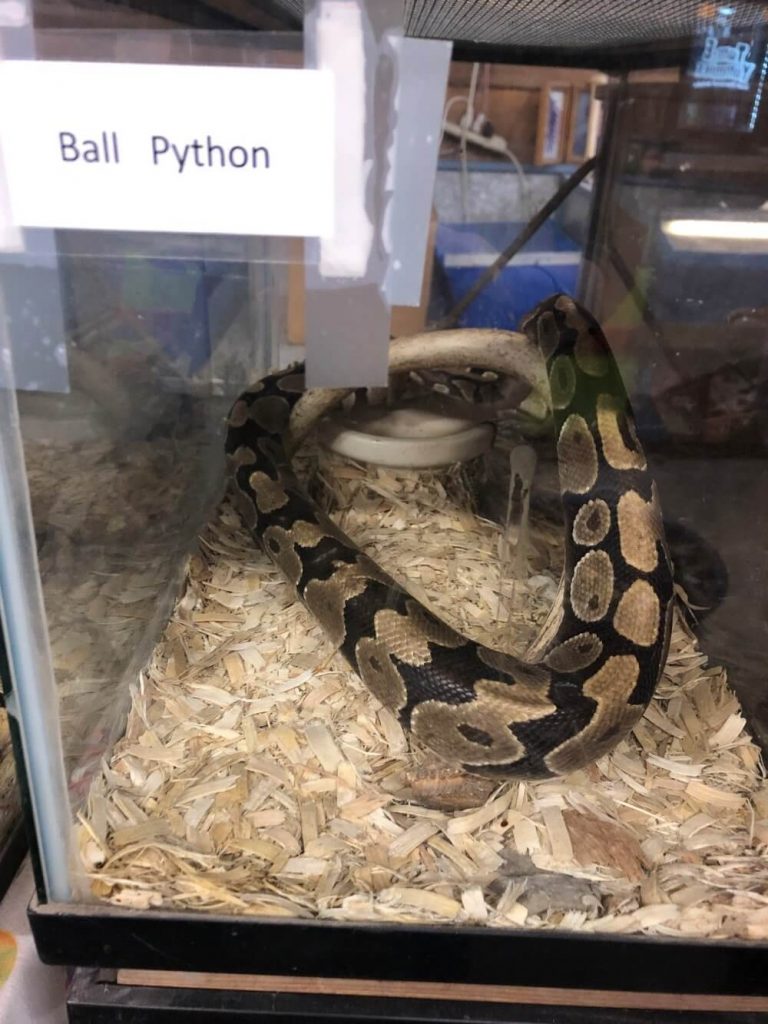Snakes are often misunderstood creatures, but they can make wonderful pets. From their interesting personalities to their low maintenance lifestyle, there is a lot to love about owning snakes. Have you ever wondered why are snakes good pets? Discover the benefits of having a snake as a pet and learn why they make such great companions.
Benefits of Keeping Snakes as Pets

Comfort
Snakes are generally quiet, low-maintenance animals. They don’t bark or meow, and require minimal attention.
Low Maintenance
Unlike other pets, snakes only need to be fed every 3-7 days and require little to no exercise. They are also very easy to clean up after.
Education
Keeping snakes as pets provides an opportunity to learn more about them. It is an ideal way to gain a greater appreciation for these mysterious creatures.
Affordability
Snakes are much more affordable than other pets. They don’t require expensive toys or food, and the cost of equipment is much lower than for other animals.
Natural Diet
Snakes are naturally carnivorous creatures and require a diet that consists mainly of live prey. This is a much more natural way of feeding them than processed foods.
Considerations Before Owning a Snake

Space Requirements
Snakes need enough space for exercise and to move around. The enclosure should be large enough for the snake to stretch out fully, and should be kept at a temperature and ventilation level that is comfortable for the species.
Lifespan
Snakes can live for many years, and some species can even live for decades. Research the longevity of the species you are considering to make sure you are prepared to care for it for its entire life.
3. Handling

| Pros | Cons |
|---|---|
| Snakes require minimal handling | They can become stressed if handled too much |
| They can be easily taken out of their habitat for short periods of time | They can become aggressive if handled improperly |
| Handling sessions should be kept short to reduce stress | Some snakes can be very skittish and will hide if handled too much |
Snakes are generally not considered good pets for children, as most do not like to be handled and can be easily stressed. However, some snakes can be tamed and handled for short periods of time. It is important to provide a proper environment and to handle the animal in a gentle manner. Handling sessions should be kept short to reduce stress on the snake.
4. Vet Care

Snakes require regular check-ups from a qualified reptile veterinarian. Although they are not high maintenance pets, it is important to have their health monitored to ensure they are in good condition. During a vet visit, the vet will check the overall health of the snake, such as skin condition, eyes, mouth, and other body parts. They will also check the temperature, humidity, and enclosure of the snake.
| Treatment | Frequency |
|---|---|
| Veterinary Exam | Annually |
| Fecal Exam | Twice Annually |
| Deworming | As Needed |
Veterinary care may include vaccinations, deworming, and other treatments that may be necessary for the snake. A fecal exam should be done twice a year to check for parasites. Deworming may be done as needed. Overall, vet visits are important to ensure the snake is healthy and any potential health issues can be addressed.
5. Safety

| Benefit | Risk |
|---|---|
| Snakes are non-venomous and docile. | They are still wild animals and can bite. |
| They require minimal handling. | They can be vulnerable to diseases. |
| They are less likely to spread disease. | They can escape from their enclosures. |
| They are typically not an aggressive species. | They may require special cages and accessories. |
Snakes are relatively safe pets, as long as proper precautions are taken. They require minimal handling, are generally non-venomous, and are less likely to spread disease than other animals. However, they can still bite, escape from their enclosures, and be vulnerable to diseases. Additionally, they may require special cages and accessories to ensure their safety.
Types of Snakes Suitable for Pets

| Type of Snake | Size | Temperament |
|---|---|---|
| Corn Snakes | 3-5 feet | Docile and calm |
| Ball Pythons | 3-5 feet | Docile and calm |
| Red-Tailed Boa Constrictor | 7-10 feet | Docile and calm |
| Gopher Snakes | 3-5 feet | Docile and calm |
| King Snakes | 2-4 feet | Docile and calm |
| Milk Snakes | 2-4 feet | Docile and calm |
| Rosy Boa | 2-3 feet | Docile and calm |
| Garter Snakes | 1-3 feet | Docile and calm |
Snakes make wonderful pets for those who are willing to commit to their care. There are many types of snakes that are suitable for a home environment. Corn snakes, ball pythons, red-tailed boa constrictors, gopher snakes, king snakes, milk snakes, rosy boas, and garter snakes are all popular choices for pet owners. They range in size from 1-10 feet, and all have docile temperaments. Proper research and care should be taken when choosing a snake as a pet.
1. Corn Snakes

Corn snakes are a great option for a pet snake due to their docile nature and low maintenance. They are also known as the red rat snake. They are non-venomous and can be found in the United States and Mexico. Corn snakes can live for up to 15 years in captivity and typically reach an adult size of 3 to 5 feet in length. They are active and inquisitive, making them a great pet. Corn snakes are also relatively easy to care for, requiring a basic enclosure, such as a tank, with a good substrate and a hide. They also require temperatures of 70-80 degrees Fahrenheit and a UVB light. Corn snakes can be fed pre-killed rodents, such as mice, which can be readily purchased from pet stores.
2. Kingsnakes

| Description | Size | Temperament |
|---|---|---|
| Kingsnakes are small to medium-sized constrictors typically found in the western United States. They come in a wide variety of colors and patterns. | Adult kingsnakes are typically 30-72 inches (76-183 cm) long. | Kingsnakes are generally docile and make good pets. |
Kingsnakes are relatively easy to care for and require a minimal amount of supplies. They should be kept in an enclosure that is at least twice as long as the snake’s body and should be provided with a hiding spot, a water bowl, and a substrate such as aspen bedding or cypress mulch. The enclosure should also be kept warm, with temperatures between 75-85°F (24-29°C). Kingsnakes should be fed a diet of mice or rats, depending on the size of the snake.
3. Garter Snakes

Garter snakes are one of the most common and popular pet snakes. They are small, docile, and generally easy to care for. These snakes are typically quite hardy, and can live up to 10 years with proper care. They come in a variety of morphs and colors, and they can be found in the wild in most parts of the world. Garter snakes are also among the most affordable pet snakes, which makes them an attractive option for the budget-conscious snake owner.
4. Rat Snakes
- Tolerant of handling and make excellent pets
- Docile and do not usually bite
- Wide variety of sizes and color morphs
- Easy to set up and maintain
- Can live up to 15 years
5. Milk Snakes
| Advantage | Disadvantage |
|---|---|
|
|
Milk snakes are a type of colubrid snake, native to North and Central America. They come in a variety of colors and patterns, making them quite attractive. They are small, reaching a maximum size of around 4 feet. They are easy to care for and have a docile temperament, making them a good choice for beginner snake owners. Milk snakes can be quite tolerant of handling, but may become stressed if handled too frequently. They can be a bit tricky to feed in captivity, so it is important to be aware of this when choosing these snakes as pets.
Frequently Asked Questions
What are the benefits of having a snake as a pet?
Snakes require minimal maintenance and are relatively inexpensive to feed and house. They are generally low-odor and low-noise pets and require no walking or grooming. They are also fascinating and interesting to watch, and many snake owners develop a strong bond with their pet. Snakes can also make great educational tools for teaching children about the natural world.
What are some of the advantages of keeping a snake as a pet?
Snakes are low-maintenance pets that require minimal space and are easy to care for. They are also ideal for people with allergies, as they do not cause reactions like cats and dogs. Furthermore, snakes do not need to be walked or exercised and are relatively quiet, making them good pets for those living in apartments or other places with noise restrictions. They can also provide companionship and be interesting to observe.
What makes snakes a good choice for pet ownership?
Snakes are relatively low-maintenance pets, requiring little space, time, and effort to care for. They have a long lifespan, with some species living up to 25 years. Snakes are also silent and odorless, making them an ideal choice for people who live in apartments or have noise restrictions. They require minimal grooming, and their food is easy to come by and store. Snakes are also fascinating creatures, and a great way for people to introduce themselves to the world of reptiles.
Are there any special considerations to keep in mind when caring for a pet snake?
Yes, there are several considerations to keep in mind when caring for a pet snake, such as providing the correct temperature, humidity and lighting levels, as well as the correct type of enclosure and substrate. Depending on the species, snakes may require a specialized diet that can include live prey and/or supplementation with vitamins and minerals. It is also important to handle the snake with care, as stress can lead to health issues. Finally, regular vet visits are necessary to ensure the snake is healthy and receiving the proper care.
How do snakes differ from other types of pets in terms of care and maintenance?
Snakes require less maintenance than other types of pets, such as dogs and cats. Unlike cats and dogs, snakes don’t need to be taken for walks or groomed. Furthermore, snakes are relatively low-cost pets, as their diet consists mostly of frozen rats, which are much cheaper than the food for cats and dogs. Additionally, snakes don’t require much space, and can easily be housed in a terrarium. Finally, snakes require less attention than other pets, and are usually quite low-maintenance.
Conclusion
Snakes are unique and interesting pets that can make for great companions. They are low-maintenance, require minimal space, and are relatively inexpensive to care for. Unlike many other pets, snakes do not need to be taken for walks or require toys and playtime. If you are looking for an exotic pet that you can enjoy watching and interacting with, a snake may be the perfect choice for you.






